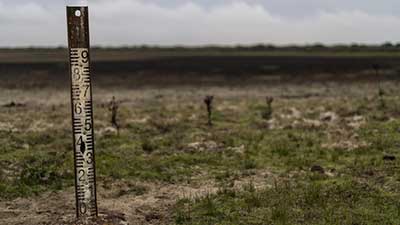Date: 25/03/2023
Relevance: GS-2: Important International institutions, agencies and fora- their structure, mandate; Conservation, environmental pollution and degradation, environmental impact assessment.
Key Phrases: IPCC, The Sixth Assessment Report, UNFCCC, Paris Agreement, Common But Differentiated Responsibility, Polar Ecosystems, Adaptation, Climate Risk, Vulnerability, Mitigation.
Context:
- The Sixth Assessment Report (AR6) cycle of the Intergovernmental Panel on Climate Change (IPCC) released its synthesis report recently, which consolidates key findings from its six most recent reports.
Key Highlights:
- The report's credibility is bolstered by the fact that its
summary for policymakers is scrutinized and approved by governments
worldwide.
- The United Nations Secretary General has dubbed it a "survival guide for humanity," underscoring its significance.
- Moreover, it is likely to be the IPCC's final report for several years.
- The report affirms that human activity is undeniably causing a
rise in global temperatures, which have now gone up by about 1.1°C above
pre-industrial levels.
- Although the pace of emissions growth has decreased in the past ten years, the projected trajectory for humanity is 2.8°C (range of 2.1-3.4°C) by 2100.
- This increase in temperature has already resulted in fast and extensive impacts on climatic systems.
- The report also warns that many climate-related risks are higher than previously assessed in AR5, for any future warming level.”
Key Takeaways:
- This new realisation supports the IPCC report's focus on 1.5° C pathways. This 1.5° C focus has two effects:-
- First, the 1.5° C aim has a much lower "carbon budget" than the 2° C target. Modelled global pathways imply that limiting warming to 1.5° C requires greenhouse gas (GHG) emissions to be reduced by 43% by 2030, whereas 2° C requires 21%.
- Striving for a 1.5° C target requires deep and immediate
emissions reductions in all sectors and regions, which highlights different
national circumstances, climate equity, and the UN Framework Convention on
Climate Change's core principle of Common but Differentiated
Responsibility and Respective Capabilities.
- By 2019, developed economies had burned 4/5ths of humanity's 1.5° C carbon budget, according to the IPCC.
- The reduced carbon budget raises problems of equality and who is responsible for meeting the 1.5°C target, which is crucial from an effects perspective.
- The second key takeaway from the IPCC report is that the dangers of climate change at lower temperatures necessitate early climate adaptation.
- Second, low-temperature dangers necessitate early climate adaptation.
The paper notes that adaptation has limits, thus climate change losses and
consequences are unavoidable.
- The analysis shows that some coastal and polar ecosystems have reached their climate adaptation limits. With warming, urban greening and wetlands restoration become less successful.
- The paper warns against maladaptation, such as poorly constructed seawalls, which can defer and aggravate climate consequences for short-term and frequently iniquitous adaptation gains.
- At higher temperatures, climate change could cause cascading concerns including food instability and migration, which are difficult to manage. These findings suggest that mitigation is necessary since countries cannot develop their way out of climate risk and vulnerability.
Key Message:
- The key message of the report is the urgent need for "climate-resilient development," a developmental model that integrates both adaptation and mitigation to advance sustainable development for all.
- The report highlights the plethora of technologies and design
options that can help countries reduce emissions or become more resilient
today at low costs, and in a technically feasible manner.
- It also emphasizes the importance of prioritizing and addressing equity and social justice in transition processes.
- The ultimate goal is net-zero emissions at the global level, which is contingent upon significant carbon dioxide removals that are challenging to achieve at scale.
Conclusion:
- The recently released IPCC AR6 synthesis report provides a comprehensive
overview of the progress made by countries in combating climate change.
- While there is evidence of progress, with the proliferation of laws and policies, the report highlights several gaps that remain in humanity's response to the crisis.
- Despite the effectiveness of existing policy tools, such as regulations and carbon markets, there are ambition gaps and implementation gaps between modelled sustainable pathways and what countries have pledged.
- Delayed action risks locking-in high carbon infrastructure, creating stranded assets and financial instability in the medium term. The report emphasizes the urgency of high upfront investments in clean infrastructure and an increase in both adaptation and mitigation financing.
- Despite the cost-effectiveness of several response options, there is a need for the world to act quickly. The report offers a blueprint for sustainable development, and it is now up to governments and people of the world to take action to combat climate change.
Source: The Hindu
Mains Question:
Q. What are the main gaps highlighted in the IPCC AR6 synthesis report regarding the response of humanity to the climate crisis, despite the proliferation of laws and policies? According to the report, how can governments and people of the world contribute to combating climate change? Comment (250 words).







